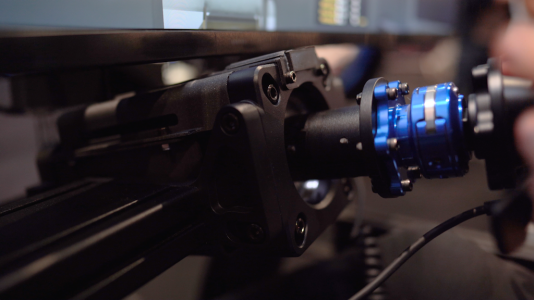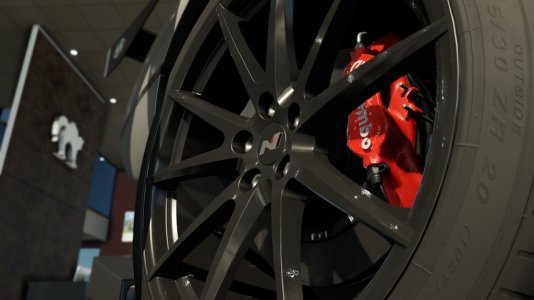When the 24 Hours of Le Mans comes around I tend to pull out my copy of Steve McQueen's Le Mans for a rewatch. By all accounts, it was a commercial disaster and by all standard film criticism an objectively bad film. I've watched it a number of times now, though, and I don't quite agree. I'm always struck with its calm, understated delivery, and the subtext in the film language that can be drawn out of such a so-called bad film. So, I wrote up my take and thought you petrol heads might enjoy a look back on it, too.
Below is an intro to give you a taste. Click here for the full piece.

Steve McQueen’s Le Mans (1971) was a commercial disaster and, by all standard interpretation, an objectively bad film. It’s slow, self-indulgent, woodenly acted, sparse in dialog, and even sparser in character development. And, yet, I can count on the fingers of one hand the number of movies I’ve watched more than once and McQueen’s Le mans is on that list.
People care about their passions. McQueen’s passion for racing dominates this film and that is obvious on any watch. When it comes to story, though, people care about people. Le Mans drives the racing so hard and for so long that viewers are emotionally starved for story between people instead of between cars. When the characters do interact in the movie, it is like a fuel stop for a thirsty engine or new tires for a car out of grip. McQueen is also a dedicated actor, he cares deeply about movies and story, and that plays the minor theme to Le Mans major theme. As with racing, the long, high-speed Mulsanne Straight is always followed by the abrupt, right-angle Mulsanne Corner. So, too, with action and story in film.

Michael Delaney (McQueen’s character) has feelings of guilt over an accident that resulted in the death of Piero Belgetti, the widowing of Piero’s wife Lisa Belgetti, Michael’s own survival, and the emotional toll of having to relate to Piero’s widowed wife, Lisa, who chooses to attend the Le Mans race.
Long before ‘strong female characters’ ruined women in film, Elga Andersen’s portrayal of Lisa Belgetti shows a real woman, with strengths and weaknesses, who is still capable of going to the people and places that brought about the world of grief she now inhabits. Lisa chooses to go back to Le Mans even after the death of her husband there and in spite of the fact that seeing old faces will bring her pain to the surface.
Michael and Lisa meekly meet each other in the dark of the passageways behind the pit stalls. They greet each other, struggling to find adequate words. We come to understand that this is likely a meeting after many months, prior to which they both saw each other frequently at races, in pit stalls, and quite likely on very friendly and familiar terms, as Lisa’s husband, Piero, was Michael’s former teammate.
Michael is clearly out of his element. He, too, has strengths and weaknesses. Racing his clear strength. But his well-meaning nature brings him to ask, “Are you well?” Lisa looks up with an almost-hopeful almost-smile and nods. The conversation falters and Michael asks if she’ll excuse him. He returns to his trailer, empty but safe.
Click here to continue reading.
Below is an intro to give you a taste. Click here for the full piece.
Accidental Greatness: Steve McQueen’s Le Mans
Steve McQueen’s Le Mans (1971) was a commercial disaster and, by all standard interpretation, an objectively bad film. It’s slow, self-indulgent, woodenly acted, sparse in dialog, and even sparser in character development. And, yet, I can count on the fingers of one hand the number of movies I’ve watched more than once and McQueen’s Le mans is on that list.
People care about their passions. McQueen’s passion for racing dominates this film and that is obvious on any watch. When it comes to story, though, people care about people. Le Mans drives the racing so hard and for so long that viewers are emotionally starved for story between people instead of between cars. When the characters do interact in the movie, it is like a fuel stop for a thirsty engine or new tires for a car out of grip. McQueen is also a dedicated actor, he cares deeply about movies and story, and that plays the minor theme to Le Mans major theme. As with racing, the long, high-speed Mulsanne Straight is always followed by the abrupt, right-angle Mulsanne Corner. So, too, with action and story in film.
Are you well?
Michael Delaney (McQueen’s character) has feelings of guilt over an accident that resulted in the death of Piero Belgetti, the widowing of Piero’s wife Lisa Belgetti, Michael’s own survival, and the emotional toll of having to relate to Piero’s widowed wife, Lisa, who chooses to attend the Le Mans race.
Long before ‘strong female characters’ ruined women in film, Elga Andersen’s portrayal of Lisa Belgetti shows a real woman, with strengths and weaknesses, who is still capable of going to the people and places that brought about the world of grief she now inhabits. Lisa chooses to go back to Le Mans even after the death of her husband there and in spite of the fact that seeing old faces will bring her pain to the surface.
Michael and Lisa meekly meet each other in the dark of the passageways behind the pit stalls. They greet each other, struggling to find adequate words. We come to understand that this is likely a meeting after many months, prior to which they both saw each other frequently at races, in pit stalls, and quite likely on very friendly and familiar terms, as Lisa’s husband, Piero, was Michael’s former teammate.
Michael is clearly out of his element. He, too, has strengths and weaknesses. Racing his clear strength. But his well-meaning nature brings him to ask, “Are you well?” Lisa looks up with an almost-hopeful almost-smile and nods. The conversation falters and Michael asks if she’ll excuse him. He returns to his trailer, empty but safe.
Click here to continue reading.
Last edited:










